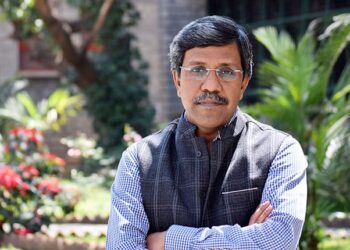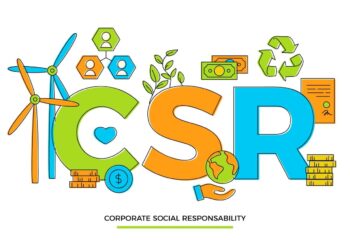To prevent Lebanonisation, nations must prioritize inclusivity, reject extremism, and build a strong, shared national identity that values unity over division.
“No country, no matter how successful, can be safe if religious extremism and deep social divisions take hold.” These words encapsulate the grim reality of a phenomenon often referred to as “Lebanonisation.” Originally derived from the unique socio-political structure and subsequent disintegration of Lebanon, the term has become a global metaphor. It serves as a warning against the corrosive impacts of entrenched sectarianism, foreign interference, and political polarization that can destabilize even the most prosperous and stable nations.
Understanding Lebanonisation: Origins and Definition
The term “Lebanonisation” refers to the fragmentation of a country along religious, ethnic, or sectarian lines, where various factions compete for power and influence, often at the expense of national unity. This concept took shape following Lebanon’s devastating civil war from 1975 to 1990, a conflict that fractured the country into religious and political enclaves. Although Lebanon was once hailed as the “Paris of the Middle East” for its cultural sophistication and cosmopolitan lifestyle, the descent into civil war transformed it into a battleground for internal and external actors, each seeking dominance through sectarian allegiances.
The Curse of Sectarianism
Lebanon’s complex political framework, known as the “confessionalist system,” divides power based on religious affiliations, mandating that the president be a Maronite Christian, the prime minister a Sunni Muslim, and the parliamentary speaker a Shia Muslim. While this system was designed to promote balance among Lebanon’s religious communities, it inadvertently institutionalized division, creating a society more focused on preserving religious identity than national unity. This structure became a curse rather than a blessing, leading to social and political fragmentation that impeded Lebanon’s growth as a unified state.
Societies around the world must heed Lebanon’s lesson: that collective unity is essential for national stability and growth.
Foreign Interference and “Dangerous Othering”
Lebanon’s political divisions have not only weakened its internal cohesion but have also made it vulnerable to foreign interference. Nations from the West, as well as regional powers like Iran and Saudi Arabia, have exploited Lebanon’s sectarian divides to advance their own geopolitical interests.
These external forces supported different factions, effectively turning Lebanon into a proxy battleground. This “dangerous othering” promoted divisive identities, fueling conflicts that escalated beyond Lebanon’s borders. Today, Lebanon continues to suffer from these international rivalries, as external powers vie for influence within its fractured political system.
As Israel intensifies its ground and aerial offensive against Hezbollah in Lebanon, over 1,100 Lebanese have lost their lives, and approximately 1.2 million have been displaced due to the conflict, marking the largest displacement in Lebanon’s history.
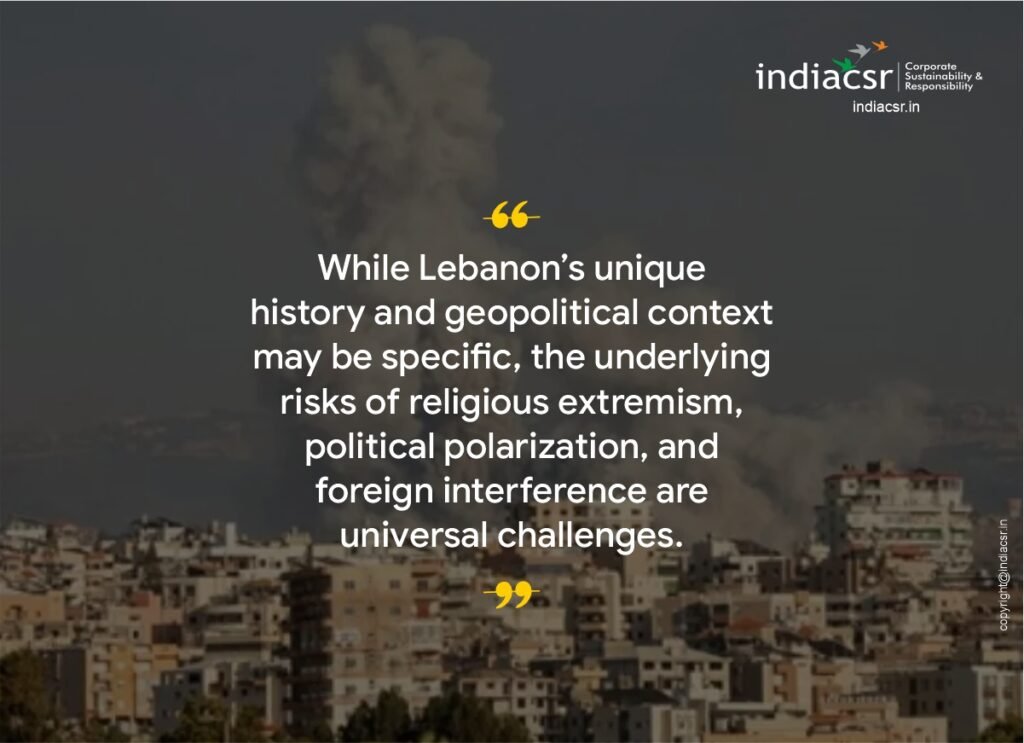
The Domino Effect: Lebanonisation as a Global Concern
The concept of Lebanonisation is not confined to Lebanon alone. Across the globe, societies with multi-religious or multi-ethnic populations face similar risks when social cohesion deteriorates, and religious or ethnic identities take precedence over national identity. Countries in the Middle East, parts of Africa, and even segments of Western societies have seen tensions rise as political actors exploit identity for political gain. Lebanonisation serves as a cautionary tale for these nations, warning of the dangers inherent in allowing divisive narratives and sectarian loyalties to overshadow collective goals.
Lessons for Nations: The Fragility of Social Fabric
Lebanonisation underscores the fragility of the social fabric in any society. When political and religious divisions are institutionalized, they can deepen existing social divides, making it difficult to reverse course. The Lebanese experience illustrates that policies favoring specific identities can sow mistrust and reduce a society’s ability to collaborate on national objectives. For countries with deep-seated ethnic or religious diversity, this lesson is particularly relevant. Governments must work toward inclusive governance models that prioritize unity and common purpose over sectarian interests.
While Lebanon’s unique history and geopolitical context may be specific, the underlying risks of religious extremism, political polarization, and foreign interference are universal challenges.
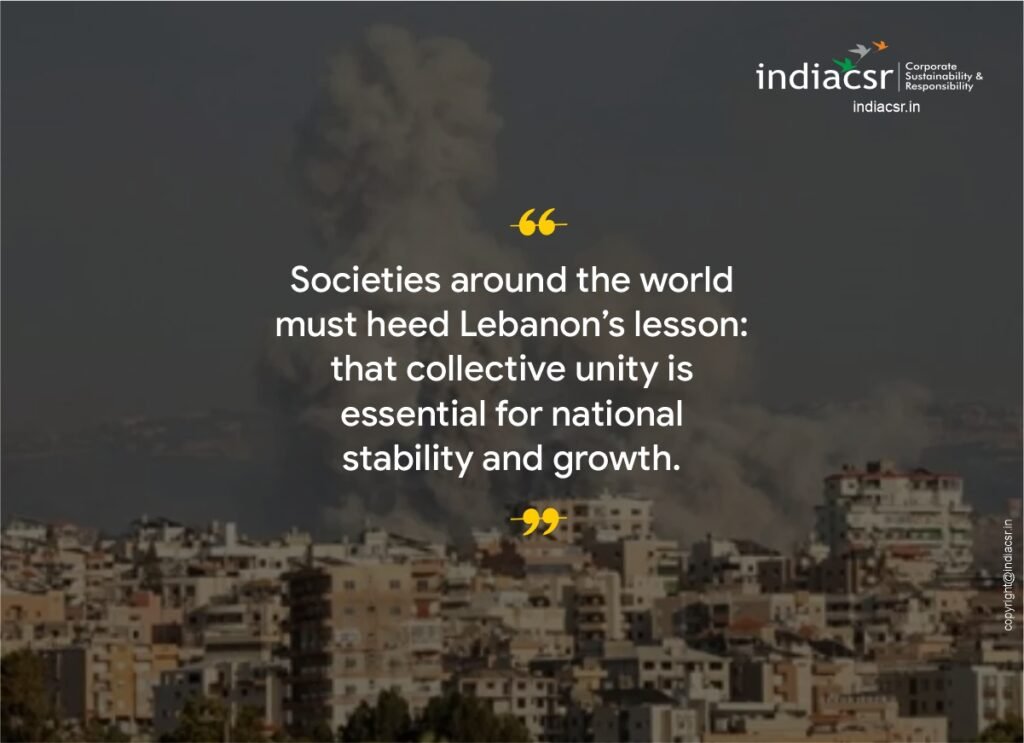
The Role of Extremism and Political Polarisation
Religious extremism and political polarization are potent catalysts of Lebanonisation. In Lebanon, various groups have aligned themselves with radical ideologies to further their influence, which has often led to cycles of violence and retribution. When political disagreements escalate into religious or ethnic conflicts, it sets the stage for prolonged instability. Lebanon’s story reminds us that extremism, whether religious or ideological, is incompatible with peace. For nations wishing to avoid a similar fate, embracing pluralism and creating frameworks that discourage polarization are essential steps.
A Warning for Developed Nations
Lebanonisation is often perceived as a problem for developing or politically unstable countries. However, even prosperous and democratic societies are not immune. Western nations, particularly those grappling with rising populism and ideological divides, face the danger of Lebanonisation if they do not address social fragmentation. Polarization in political discourse, combined with growing distrust in government institutions, can quickly escalate into widespread division. For these societies, Lebanon’s history is a stark reminder of the importance of nurturing an inclusive national identity that transcends religious, ethnic, or political lines.
(Copyright@IndiaCSR)
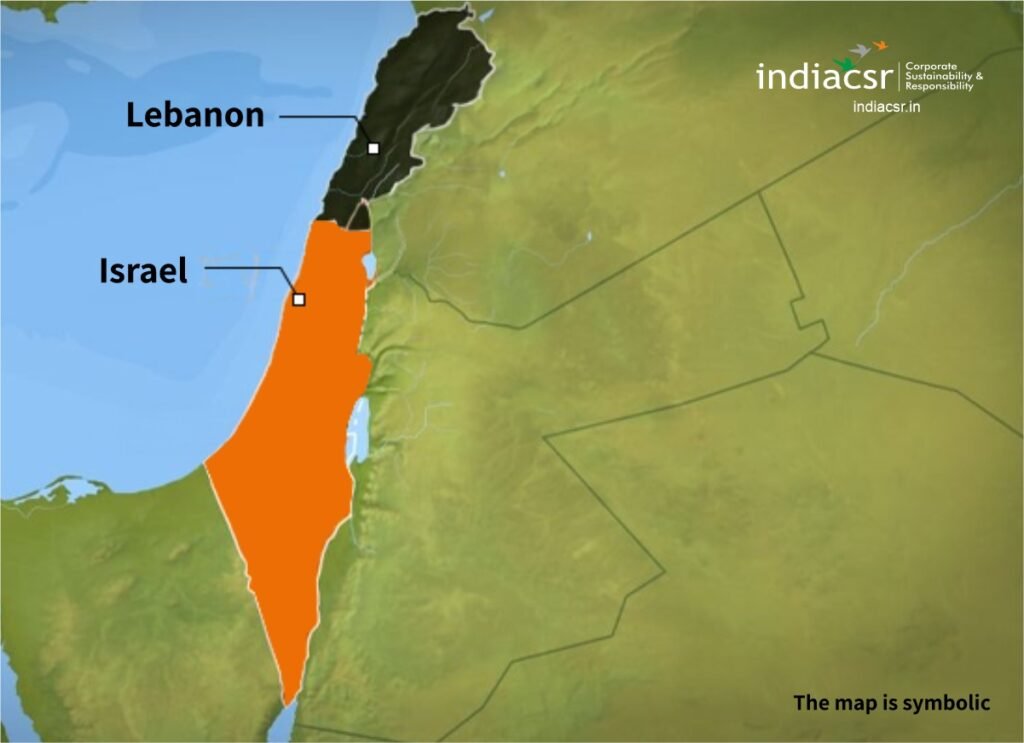
The Escalating Conflict in Lebanon
Israel’s Expanding Campaign and Its Global Implications
“The questions are endless about what Israel’s endgame is in Lebanon,” says Sam Heller, a security analyst in Beirut, the Capital of Lebanon. Israel’s military campaign against Hezbollah in Lebanon has intensified, pushing thousands of civilians from their homes and escalating regional tensions. As the situation unfolds, the humanitarian toll grows, drawing global attention to the devastating impacts of the conflict on Lebanon and the broader Middle East.
Evacuations and Humanitarian Crisis
The Israeli military has urged civilians in over 20 towns and villages in southern Lebanon to evacuate, aiming to clear areas near the border. “For your safety, move north of the Awali River,” warned Israel in its latest statement. This escalation follows Israel’s ongoing airstrikes and ground operations targeting Hezbollah strongholds. Since the conflict’s intensification, Lebanon has seen the displacement of more than 340,000 people, a humanitarian crisis compounded by the lack of resources to support the displaced populations.
Expanding Operations: Ground and Air Offensives
“The IDF is not targeting Lebanon as a state but Hezbollah and its infrastructure,” the Israeli Defense Forces stated. Despite this, the impact on Lebanon has been severe. On Thursday, the Israeli military conducted ground raids in southern Lebanon, backed by air support, killing Hezbollah commanders and militants. Meanwhile, Israeli airstrikes struck Beirut’s Bachoura neighborhood, killing at least six civilians, according to Lebanon’s Health Ministry. “Our goal is to dismantle the terrorist infrastructure Hezbollah has built near our border,” said Israeli military chief Herzi Halevi.
The Toll on Both Sides
The ground conflict has been challenging for Israel, with Hezbollah launching approximately 230 projectiles toward Israel, as confirmed by the Israeli military. Israel’s ninth soldier died this week, signaling the dangers of engaging in direct combat with Hezbollah, an adversary that has successfully repelled Israeli forces in past conflicts. “The Israelis face resistance on the ground, and it’s unclear how they will overcome Hezbollah’s entrenched forces,” noted Sam Heller. The conflict has proven costly for both sides, with Hezbollah also suffering significant losses.
Hezbollah and Iran’s Response
Hezbollah’s main backer, Iran, retaliated on Tuesday with a ballistic missile attack on Israel, citing the death of Hezbollah leader Hassan Nasrallah in an Israeli airstrike. This has heightened fears of a broader regional war. “Iran’s involvement adds a new layer of complexity to the conflict, drawing in powers that extend beyond Lebanon’s borders,” said Middle East analyst Julian Reed. The strike on Nasrallah has shaken Hezbollah’s leadership, but it has also fueled a determination within the group to counter Israel’s offensive.
International Concerns and Regional Stability
The international community is increasingly concerned about Lebanon’s stability. The United Nations has condemned the escalating violence, calling for immediate efforts to protect civilians. Lebanon’s fragile infrastructure and already strained economy are struggling to manage the influx of displaced people. “Lebanon is a country on the brink, and this conflict could be the tipping point,” said a UN representative. The widespread displacement and infrastructure damage threaten to destabilize the entire region, with neighboring countries fearing a spillover.
You Learn
The Uncertain Path Forward
- As Israel’s military campaign in Lebanon intensifies, the world watches with trepidation.
- The continued escalation risks drawing Lebanon’s national army into the conflict and pushing the nation further into chaos.
- With no clear resolution in sight, the toll on civilians grows by the day. “The true cost of this conflict will be felt by the people caught in its crossfire,” says humanitarian worker Lara Wills.
- As the conflict unfolds, the calls for peace grow louder, though the path to stability remains uncertain.
(October 4, 2024)
(Copyright@IndiaCSR)








